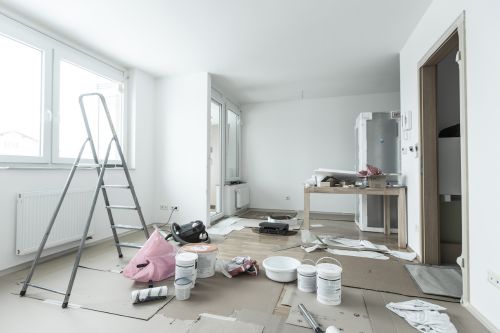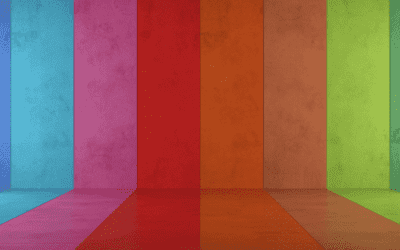Painting a house is one of the most important tasks to keep it in good condition, both aesthetically and structurally. However, there is no universal rule for determining the exact frequency with which you should repaint. This depends on several factors, such as the type of paint used, the climate of the area, the use of the space and, of course, your personal preferences.
The importance of well-maintained paintwork
The passage of time inevitably affects the paintwork of a house. Sun, humidity, rain, dust and even daily use all contribute to wear and tear on the walls. Poorly maintained paintwork not only detracts from the attractiveness of your home, but can also expose surfaces to further damage, such as damp, cracks and mould.
Keeping your paint in good condition not only protects your home, but can also increase its value, especially if you plan to sell it. A fresh, well-applied finish gives the impression of care and quality.
Contact our professionals
Factors that determine frequency
Not all surfaces in a house need to be painted with the same frequency. Exterior walls, for example, are often exposed to much harsher conditions than interior walls. Below, we look at some of the factors that influence the durability of paint:
- Climate exposure: If you live in an area with a lot of sun, ultraviolet radiation can fade colours more quickly. In humid regions, paint can suffer from mould or moisture build-up.
- Paint type: High-quality paints tend to last longer, especially those formulated for exteriors. Latex paints, for example, are more resistant than oil-based paints.
- Use of spaces: High-traffic rooms, such as kitchens, living rooms and hallways, tend to get dirty faster and may require repainting more frequently.
- Application technique: A professional application ensures a better finish and longer durability. Well-distributed, pre-primed coats of paint can stand the test of time better.
General recommendations
Although needs may vary, here are some rough guidelines:
- Exterior walls: You should consider repainting every 5 to 10 years, depending on the climate and the type of paint used. In coastal areas or areas with high sun exposure, it is best to reduce this interval.
- Interior walls: The ideal frequency is usually every 3 to 7 years. Children’s rooms or high-traffic areas, such as hallways and kitchens, may need attention every 2 to 3 years.
- Ceilings: As they are usually less exposed to wear and tear, ceilings can be kept in good condition for more than 10 years, unless problems such as damp stains arise.
Signs that it’s time to paint
Sometimes it’s the condition of the paint that indicates it’s time for a fresh coat of paint, rather than the age of the roof. Pay attention to these signs:
- Visible wear and tear: If you notice that the colour has faded or the paint is dull, it’s time to act.
- Cracking or flaking: These are clear signs that the paint is no longer fulfilling its protective function.
- Stains or mildew: If the walls show stains that cannot be cleaned, or if mildew is present, a new finish may solve the problem.
- Style changes: If you’ve simply grown tired of the current colour or want to update the style of your home, there’s no reason to wait.
Benefits of keeping paint up to date
Investing in regular paint maintenance not only improves the appearance of your home, but also:
- Extends the life of walls: A fresh coat of paint protects against moisture and other external factors.
- Makes cleaning easier: Surfaces painted with high-quality paint are easier to clean and maintain.
- Increases the value of the property: A house with a well-kept facade is more attractive on the real estate market.
Rely on professionals
If you are not sure when or how to paint your house, Bartolomé Bas Pinturas can help you. With years of experience in interior and exterior painting, we offer personalised advice and high quality finishes that guarantee long-lasting and aesthetic results.
Whether you need to paint a single room or renovate the entire facade, our team is here to make your home look as good as new. Contact us today and find out how we can transform your space.
Other publications that may interest you
Modern House Paints: Creating unique and contemporary spaces
Today, house painting has transcended beyond a simple coat of colour on the walls. It has become a powerful tool to define the personality and style of a modern home. At Bartolomé Bas Pinturas, we are proud to be part of this revolution, providing painting solutions...
Painting and colour psychology: how colour influences our state of mind
The world of colour is vast and fascinating. At Bartolomé Bas Pintores, we have experienced first-hand how a simple choice of tone can transform not only a physical space, but also the emotional atmosphere it conveys. The science behind colour Colours are not merely...
Painting and decorating: how to combine colours and styles in your spaces
Creating a space that reflects your personality and style is an art. At Bartolomé Bas Pintores, we believe that every choice, from paint colour to decorating style, plays a crucial role in the narrative of your home. The magic of colour Colour has the power not only...




